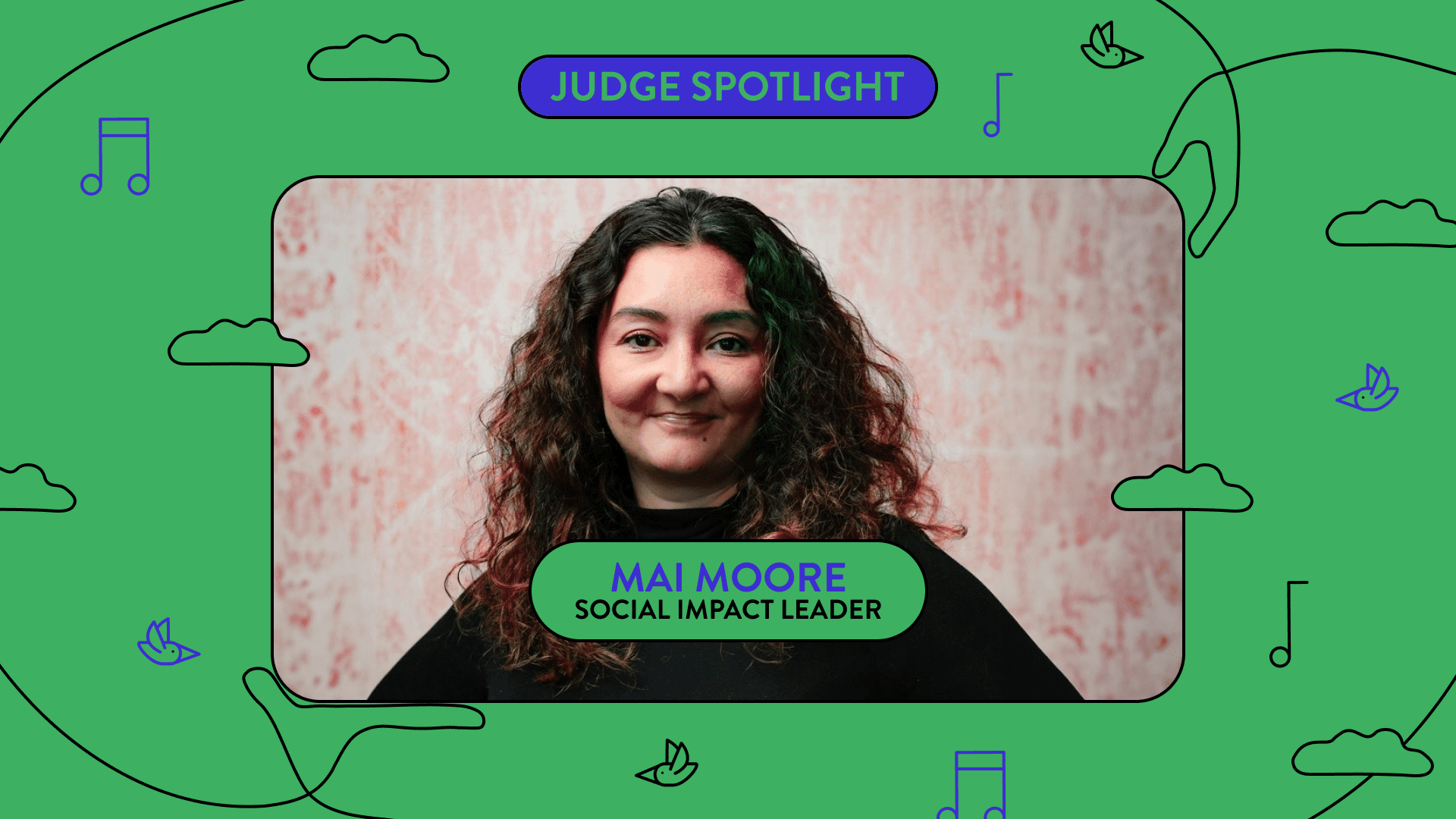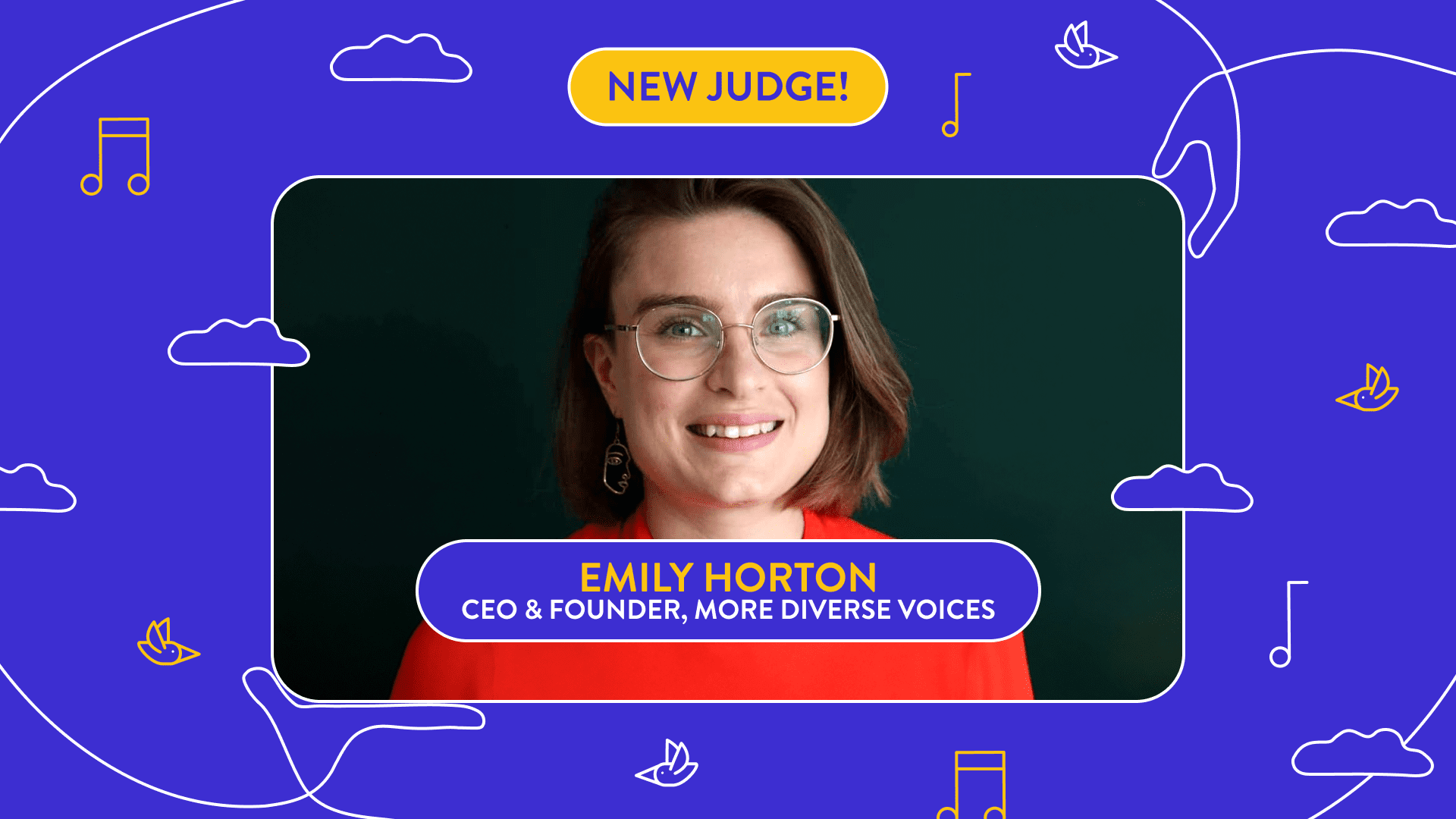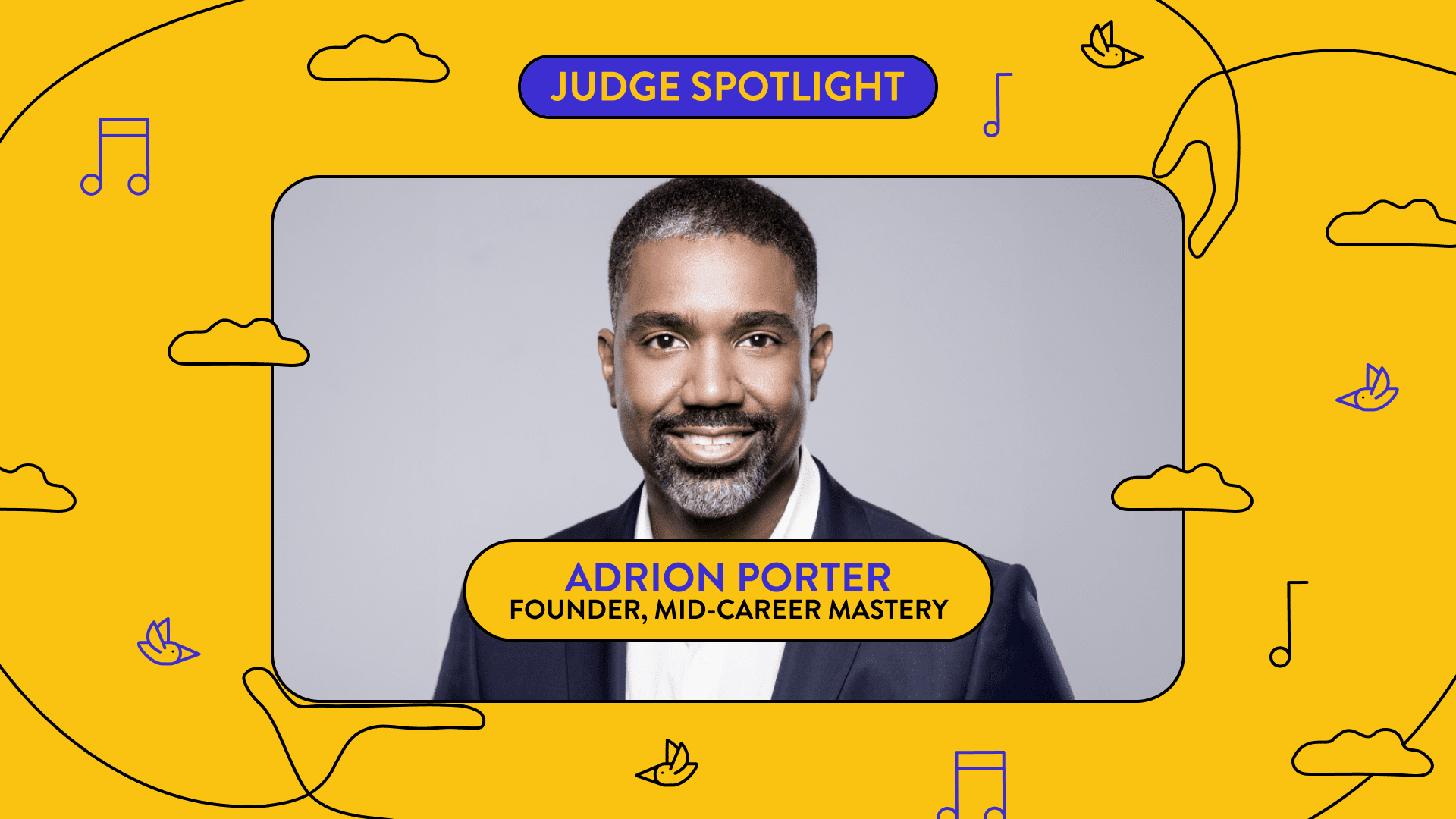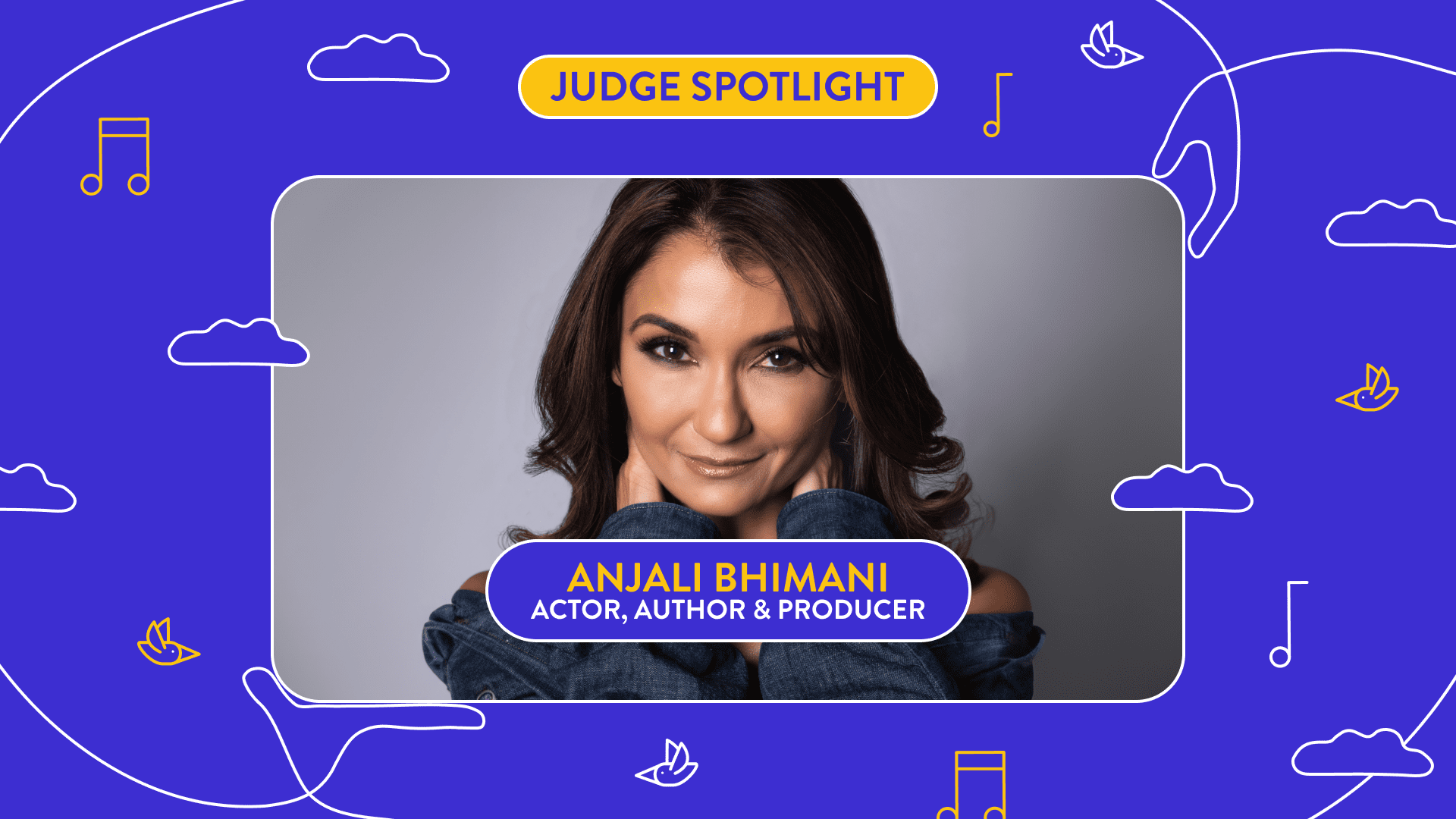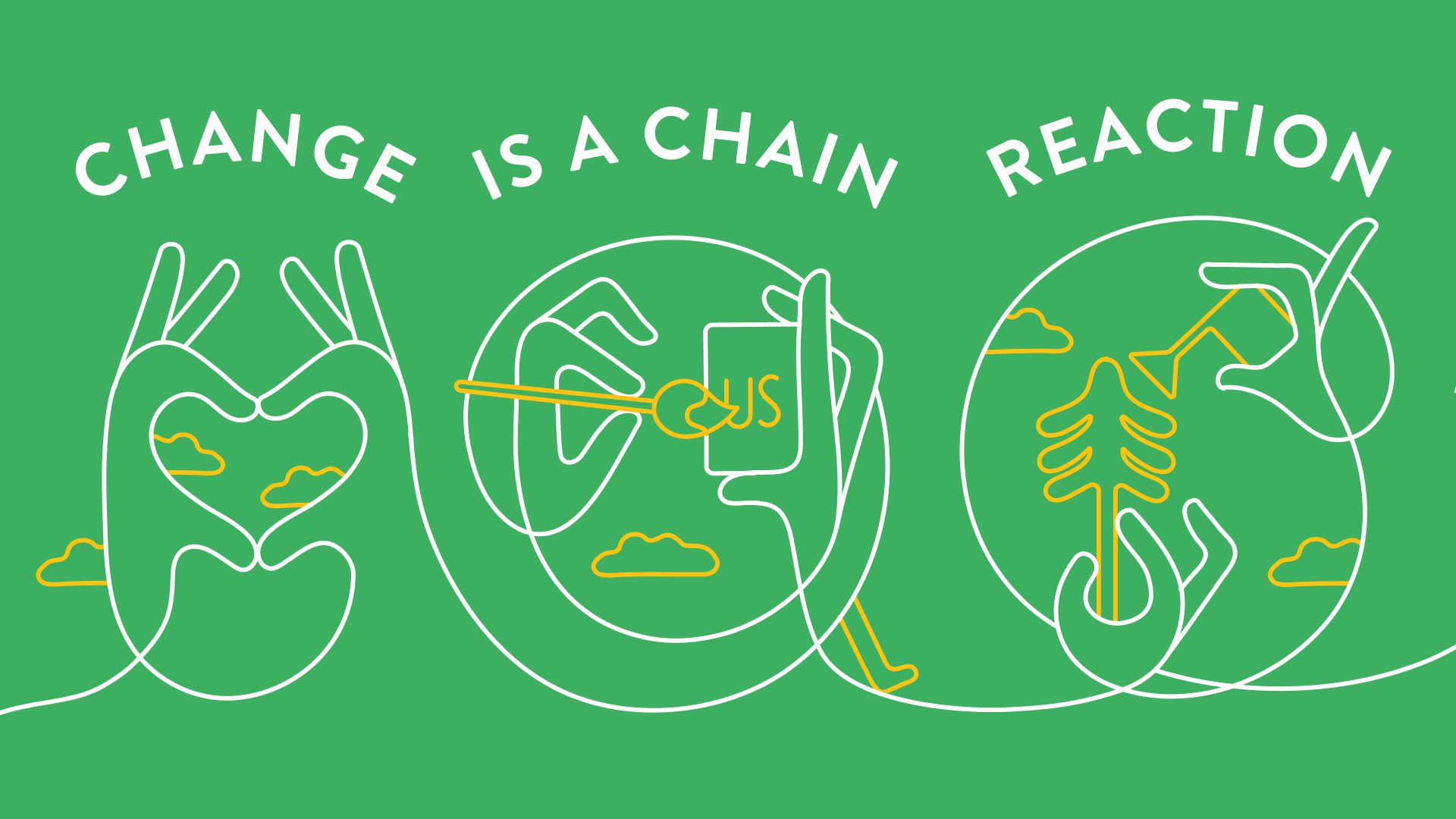Meet Dr. Charles E. Owubah, CEO of Action Against Hunger
We spoke with the Anthem-winning expert to discover what he’s expecting to see this season of The Anthem Awards.
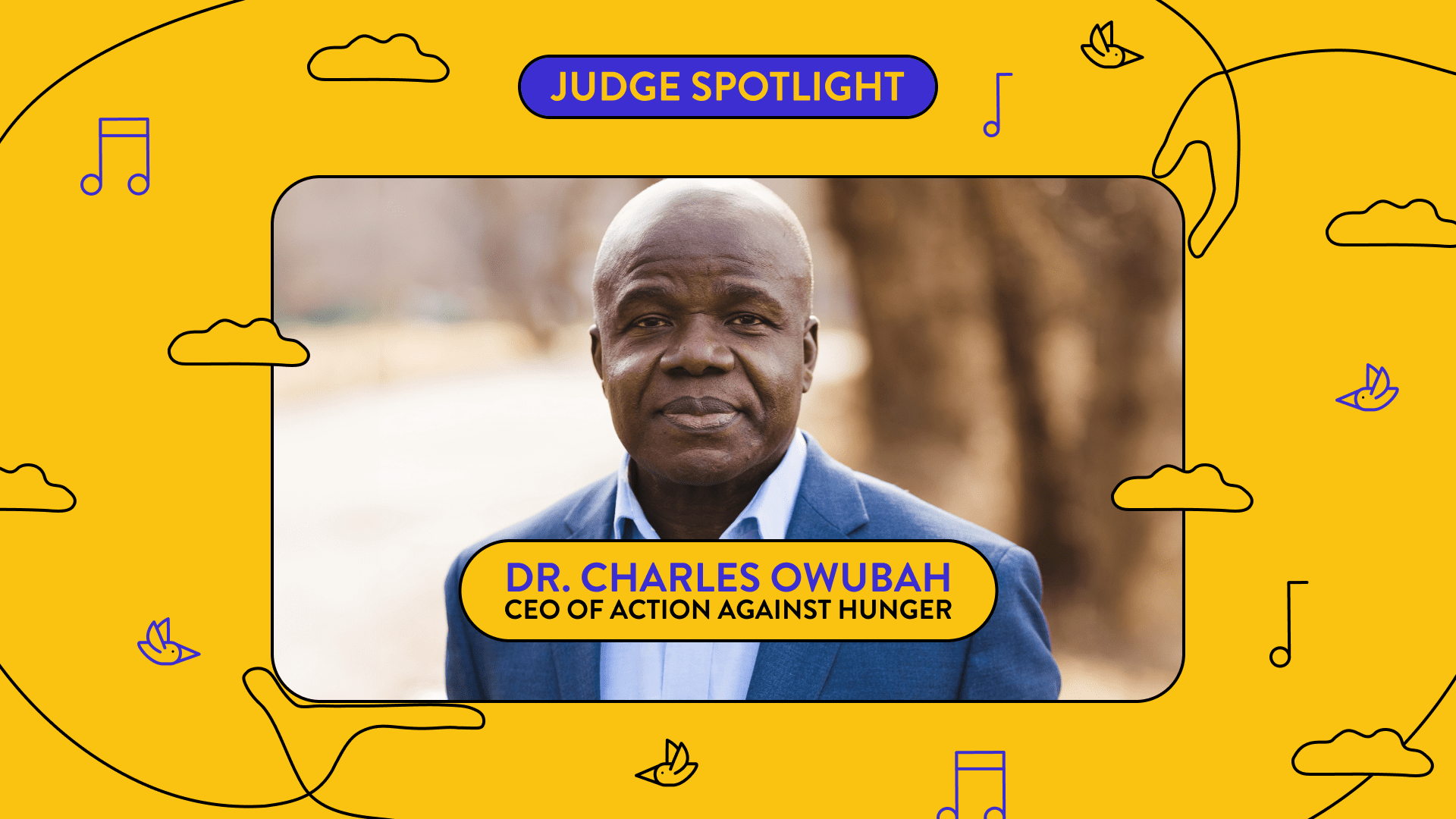
We’re thrilled to welcome Dr. Charles E. Owubah to the Anthem Judging Academy. At the helm of a multinational organization, Dr. Owubah has built a foundation for fighting food scarcity through Action Against Hunger. With a reach across 55 countries, his team tackles hunger at the root—from directly helping affected communities secure a stable, nutritional source of food to providing families with opportunities to earn an income and more. We spoke with him about his work in providing millions of people with lifesaving resources, what it takes for an impact campaign to ignite change and more.
For those who are unfamiliar, please tell us about yourself and the work that you do.
As CEO of Action Against Hunger, I am proud to help lead the global movement to end hunger. As an organization, we innovate solutions, advocate for change, and scale proven hunger prevention and treatment programs that reach more than 28 million people each year.
Personally, I know what it is to feel hunger. As the son of farmers in Ghana, I grew up on the land. I love to plant seeds and nurture their growth—and that includes seeds of hope and resilience among local people and staff in local communities. Hope is cultivated through evidence-based programs that deliver measurable impact – the kind of impact we can see in Anthem Awards winners, past and future.
What expertise are you bringing as a judge to the 3rd Annual Anthem Awards?
I’d like to think that I bring a range of expertise that will complement the insights of my fellow judges. I can offer my professional experience leading an organization that works in 55 countries, my academic experience, having earned a PhD in Natural Resource Management and Policy, and my personal perspective and passion as a concerned global citizen. I’m also honored to bring the perspective of a past Anthem Award winner. Action Against Hunger is grateful to have received two Anthem awards. In 2023, our potentially lifesaving new app for detecting acute malnutrition in children received the Gold Anthem Award for Best Humanitarian Action & Services Innovation. The year before, we were awarded the silver prize at the Inaugural Anthem Awards for our communications and fundraising work to raise awareness that hunger is on the rise—but is not inevitable.
I am honored to offer my support to the largest and most comprehensive social impact award so that together, we can amplify the voices of more changemakers who are making a critical difference in the most pressing social issues of our time.
What does it take for a social impact campaign to create real-world change?
Today, I’m able to make a difference for others because someone sacrificed for me. Growing up, life was hard. I went to school because someone decided it was important to offer free primary and middle school education in Ghana. Now, I can use my gifts and opportunities to make the world a better place for others.
I believe that change comes through both individual and collective action. True social impact campaigns spark movements that are more than a catchy phrase to solicit donations or promote an event. They are more than short-term protests, jump-on-the-bandwagon commitments, or one-off events. Movements take collective effort and transcend the organization that inspired them. And, their impacts last.
Movements can start from the ground up through champions on the ground, through organizations and larger systems such as the United Nations, or through coalitions and networks of allied groups and individuals rallying for collective change.
What within today’s advocacy space excites and moves you?
Advocacy is a force multiplier. It can create systems that are more efficient, localized, simple, scalable, and sustainable. To be most effective, it requires multiple voices and perspectives, so I’m particularly excited by the diversity within advocacy space and by grassroots action. More community advocates from around the world are using their voices and new technologies to coordinate and push for change. It’s also encouraging to see more established organizations taking a partnership approach to collective action. Last year, we connected doers, activists, philanthropists, and policymakers to reevaluate and reboot the fight against hunger.
Just last month, Action Against Hunger organized an event at the United Nations on the deadly impacts of conflict on hunger. But, Action Against Hunger experts didn’t actually speak at this event; instead, we created space for advocates from local partners and the communities we serve to share their perspectives. So, I think we’re broadening the definition of what advocacy can be and who has a seat at the table.
Is there a recent campaign or grassroots effort that inspired you? What about that project made a lasting impression?
I’m inspired by recent grassroots efforts led by youth – who surveys show are extremely concerned about the intersecting issues that increasingly define our time. Think: poverty, equity, climate. Young leaders like Malala Yousafzai and Greta Thunberg are now larger-than-life figures who started from humble beginnings.
We need to foster environments where more bright, young leaders like Malala and Greta have a chance to shine so we can ensure tomorrow’s future is a better one. Yet, hunger and its devasting impacts on millions of children’s physical, mental and emotional development are robbing entire communities of future generations. Young people are disproportionately impacted by hunger, and we’re starting to see more young people come together for change. Across East Africa, our teams are working with Youth Champions to elevate awareness of the drivers of hunger. They strive to transform local attitudes and behaviors related to nutrition, foster collaboration, and engage decision-makers.
This year, The Anthem Awards is putting a spotlight on how change is a chain reaction and is often led by intersections across causes. What impact areas are you hoping to see connect more this year?
It’s incredibly valuable that the Anthem Awards are focusing at the intersection of key issues, since those are fertile areas for change. Let me give an example that I deal with daily. Hunger is interconnected with the climate crisis, conflict, chronic inequality, health, gender, water, and countless other issues. For example, Action Against Hunger is focused on improving access to water and sanitation because without clean water, illnesses like diarrhea, parasites, and chronic intestinal inflammation are common. They can prevent children from absorbing key nutrients and make them more susceptible to malnutrition and other health issues.
Each year, we see more evidence of the climate crisis wreaking havoc on our health, environment, and our food. Climate change has an impact on everything – and I hope to see that this issue is connected to the campaigns submitted to The Anthem Awards this year.
What kind of work are you most excited to review in the new season?
I’m looking forward to seeing work that brings together the various issues we’ve been discussing. That includes efforts that are locally-led, that are deliberate about elevating diverse and marginalized voices, that focus on the intersection of issues, that look at root causes and take systemic approaches for lasting change. I also appreciate projects that use technology in new ways, and that are accessible to people not only in affluent communities, but reach more people in more places. I very much value education and also appreciate when awareness is balanced with action.
What are you looking for among this year’s cohort of impact work?
I spent much of my early career in academia, and that background drives my philosophy today – true impact must be backed by evidence. I hope to see social impact campaigns that are grounded in research and data that shows why and how the campaign is making a real difference in people’s lives.
Is there a project or initiative that you’re working on that you would like to spotlight?
We recently launched a new “All Things Explained” series of videos to explain key concepts in the fight against hunger. Check our video on the first 1,000 days of life and stay tuned for more videos content across our social media channels:
Instagram
Twitter
Facebook
Linkedin
In May, we launched a new campaign focused on conflict and hunger, “In conflict, hunger is deadlier than bullets.” Around the world, the vicious cycle of conflict and hunger is worsening, turning lives upside down, forcing people out of their homes, reducing the supply of food, and pushing people towards more dangerous resorts to survive. Join us here to take action to stop this deadly cycle!




